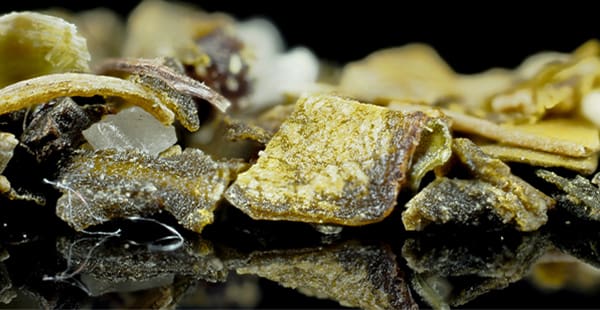01. Essiac Tea Overview
What Is Essiac Tea?
Essiac tea is an herbal mixture that some have claimed can help treat cancer and strengthen the immune system. Studies do not support these claims. Some evidence suggests that it may even cause cancer cell growth. Medical experts do not recommend Essiac tea for cancer patients.
Given its reported origins in the Ojibwa tribe of Canada, the tea is also known as Ojibwa tea. But it was not until the 1920s that someone suggested it as an alternative cancer treatment. A nurse named Rene Caisse claimed her herbal mixture (“Essiac” is “Caisse” spelled backwards) helped cure several people’s cancer.
Today, vendors sell Essiac tea and similar herbal blends, like Flor-Essence®. They often highlight claims other people have made about the benefits of the tea without making any claims of their own. They may believe this can help avoid liability when the product does not act as indicated or causes harm. Disclaimers often warn potential buyers there is no evidence to support these claims and to consult with a doctor before using their product.
The U.S. Food and Drug Administration (FDA) treats Essiac tea and similar products as dietary supplements. Supplements are not required to receive premarket approval from the FDA. They are also not formally inspected for uniformity among different batches. So it is difficult to determine the consistency of herbal blends among the same and different vendors.
Scientists who have looked into potential Essiac tea benefits have found no evidence that it can treat or cure cancer. Some evidence suggests it could be dangerous for cancer patients. Mesothelioma patients should take precautions if they are considering taking Essiac tea.
Talk to Your Doctor Before Considering Essiac Tea
Cancer patients should talk to their doctors and cancer dietitians before taking Essiac tea or any herbal mixture. There is no evidence that any Essiac tea product is made by a qualified medical professional. Patients should not take benefits or directions listed on the products as medical advice. Patients should also not consider anecdotal reports from product reviews as medical “proof.”
Each cancer patient’s medical situation is unique. An oncologist can determine if Essiac tea may be harmless or potentially dangerous for a specific patient. A doctor can also weigh in on the soundness of any directions or advice surrounding a product.
Cancer patients without a dedicated cancer doctor should find a qualified physician. There is no evidence supporting any advice that Essiac tea can substitute for cancer treatments like chemotherapy and immunotherapy.
02. Risks and Side Effects
Risks and Side Effects of Essiac Tea
While no evidence supports claims that Essiac tea blends have anticancer benefits, researchers have found evidence of risks and side effects. Potential side effects include nausea, skin blemishes and flu-like symptoms. Some studies have also documented more severe complications.
Risks can be difficult to determine ahead of time because of the lack of regulation surrounding the content of herbal tea blends. A cancer patient should consult with a doctor to understand potential risks from taking a specific blend.
A doctor can also determine how an herbal blend may interact with medications and cancer treatments. One study reported the potential for Essiac tea to increase the toxicity of chemotherapy.
This long list of side effects may make it easy for many patients to avoid Essiac tea. Any who still decide to take Essiac tea should talk to their doctor if they experience any of the side effects above.
Resources for Mesothelioma Patients
03. Unsupported Claims
Claims About Essiac Tea and Cancer
Proponents of Essiac tea have made unsupported claims about its ability to fight cancer, strengthen the immune system and detoxify the body. There is no scientific evidence that Essiac tea can help treat cancer. And it is unclear what, if any, detoxification or immune-boosting effects Essiac tea has.
The owner of the original Essiac tea blend in Canada, where the tea originated, does not actually claim their tea has any specific health benefits. The original creator of Essiac tea did not publish any scientific research supporting her claims. She also did not specify how to administer the herbal blend.
Unsupported benefits of Essiac tea and similar herbal blends include claims about its ability to:
- Detoxify the body
- Fight cancer
- Improve quality of life
- Reduce risk of metastasis
- Reduce tumor size
- Strengthen the immune system
The above claims are not supported by research into the effect of Essiac tea and similar herbal blends in humans.
Potential Dangers of Essiac Tea
The limited research into Essiac tea and similar products has uncovered some potential dangers that should concern regulators and potential users. The dangers of these products are not fully understood, and people should be cautious about drinking them.
The manufacturers of Flor-Essence state that the product is not suitable for pregnant or nursing women. Researchers have also found evidence it promotes breast cancer-like tumor formation in lab animals.
The results of one study suggest that Essiac tea has the potential to increase the toxicity of chemotherapy. The study found increased levels of a chemotherapy drug in a patient drinking Essiac. Higher doses of chemo may carry greater risks of complications like heart problems.
This early research suggests that Essiac tea and similar herbal blends should be treated with caution and skepticism.
04. Essiac Tea and Cancer Research
Research About Essiac Tea as a Cancer Treatment
Research into Essiac tea does not support the claim that it can be an effective cancer treatment. At best, Essiac tea may be harmless in certain situations. At worst, it may cause side effects and potentially serious complications.
Not all alternative treatments are harmful. Other herbal medicines, including some associated with traditional Chinese medicine, have been shown to help cancer patients manage symptoms and treatment side effects. Non-herbal complementary treatments, like beta-glucan and a healthy diet, may support immune function. The research into Essiac tea does not suggest that it can provide similar benefits.
Studies on Essiac Tea and Cancer
Existing research into Essiac tea and similar herbal blends has not found evidence that it has human cancer-fighting abilities. Studies have also failed to support claims that Essiac tea has any significant effect on quality of life or patient well-being.
In the 1970s and 1980s, the developer of Essiac submitted samples to the Memorial Sloan Kettering Cancer Center. The cancer center studied the samples and could not attribute any anticancer or immune-boosting activity to them. The National Cancer Institute (NCI) also tested samples and failed to find any antitumor activity.
A 2004 study tested Flor-Essence on laboratory rats. Researchers found the rats who ingested Flor-Essence formed more tumors than those who did not.
Individual studies into Essiac-like herbal blends in animals and cell cultures have produced isolated anticancer results. For example, one study found a mixture of Essiac herbs decreased the growth rate of prostate cancer cells. It is not a given that the results of an animal or cell study will be replicable in human subjects. Current research into Essiac tea does not support the idea that it can have anticancer effects on humans.
Research About the Herbs in Essiac Tea
Research into the individual herbs in Essiac tea presents some evidence of positive effects. But it is still unclear what, if any, positive effect tea blends have on people, including cancer patients. Individual herbs may contain some anti-inflammatory or anticancer substances.
But studies of these herbs have focused on lab and animal tests, not human trials. So it remains unclear whether these benefits apply to people who take the individual herbs.
| Research Into the Potential Benefits of Individual Herbs Found in Essiac and Flor-Essence | ||
|---|---|---|
| Herb | Evidence of Potential Benefits | Benefits Studied in Humans? |
| Blessed thistle | Scant evidence of anti-inflammatory properties | No |
| Burdock root | Some evidence of anti-toxicity properties | No |
| Indian rhubarb root | Some evidence of antioxidant, anti-inflammatory and anticancer properties | No |
| Kelp | Some evidence of anticancer properties | Yes |
| Red clover | Limited evidence of anticancer properties | Yes |
| Sheep sorrel | Some evidence of antioxidant and laxative properties | No |
| Slippery elm bark | Limited evidence of antioxidant properties | No |
| Watercress | Scant evidence of anticancer properties | Yes |
Some of these herbs have also been the subject of clinical trials. In general, these clinical trials tend to look at applications unrelated to cancer, such as acne and blood pressure. This may be because of the discouraging results of existing research into cancer-fighting herbs.
Mesothelioma patients considering taking any individual herb contained in Essiac-like tea blends should still talk to a healthcare professional. A doctor can determine if an individual herb may be safe for the patient to consume based on their individual case.
05. Common Questions
Common Questions About Essiac Tea
-
Can Essiac tea cure cancer or manage symptoms?
No, there is no evidence that Essiac tea can cure or treat mesothelioma, lung cancer or any other type of cancer. Any suggestion that it can be used for this purpose is incorrect. At best, Essiac tea may be harmless. At worst, it may cause side effects and serious complications.
-
Can Essiac tea be used as a complementary therapy alongside other cancer treatments?
No, there is no evidence that Essiac tea has a legitimate use as part of an integrative medicine plan. Integrative medicine combines conventional cancer treatments with complementary treatments. Patients looking to explore complementary treatment options should consult with their doctors.
-
What herbs are in Essiac tea?
In general, Essiac tea includes a blend of:
- Burdock root
- Indian rhubarb root
- Sheep sorrel
- Slippery elm bark
However, regulators do not formally inspect Essiac tea for manufacturing consistency. Ingredients and concentrations may not be consistent across different brands and batches.
-
What is the difference between Flor-Essence and Essiac tea?
Essiac tea and Flor-Essence are both herbal tea blends but have differences in the herbs they contain. Essiac tea generally contains burdock root, Indian rhubarb root, sheep sorrel and slippery elm bark. Flor-Essence is similar but also contains blessed thistle, kelp, red clover and watercress.










